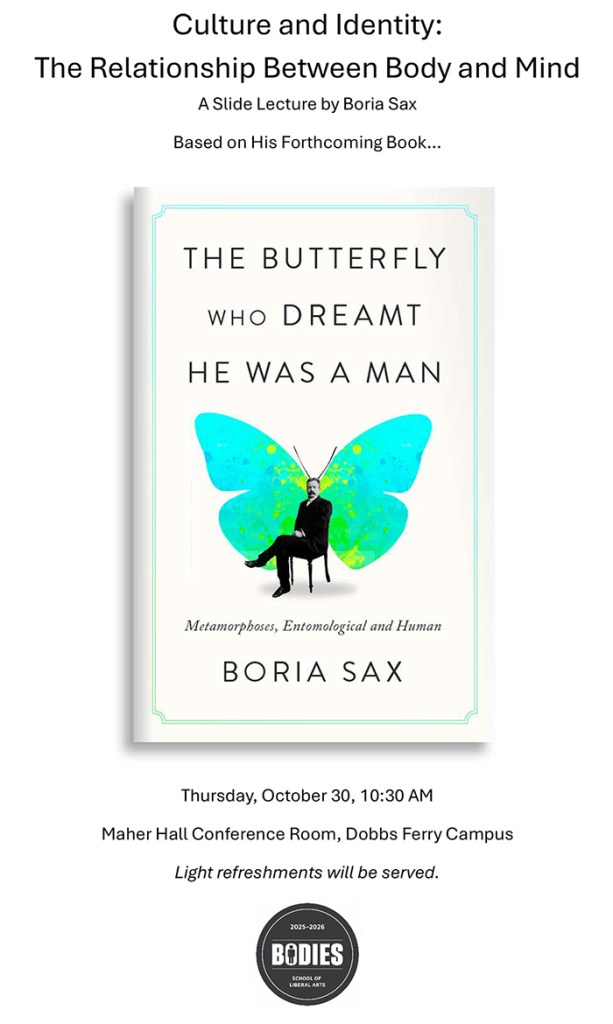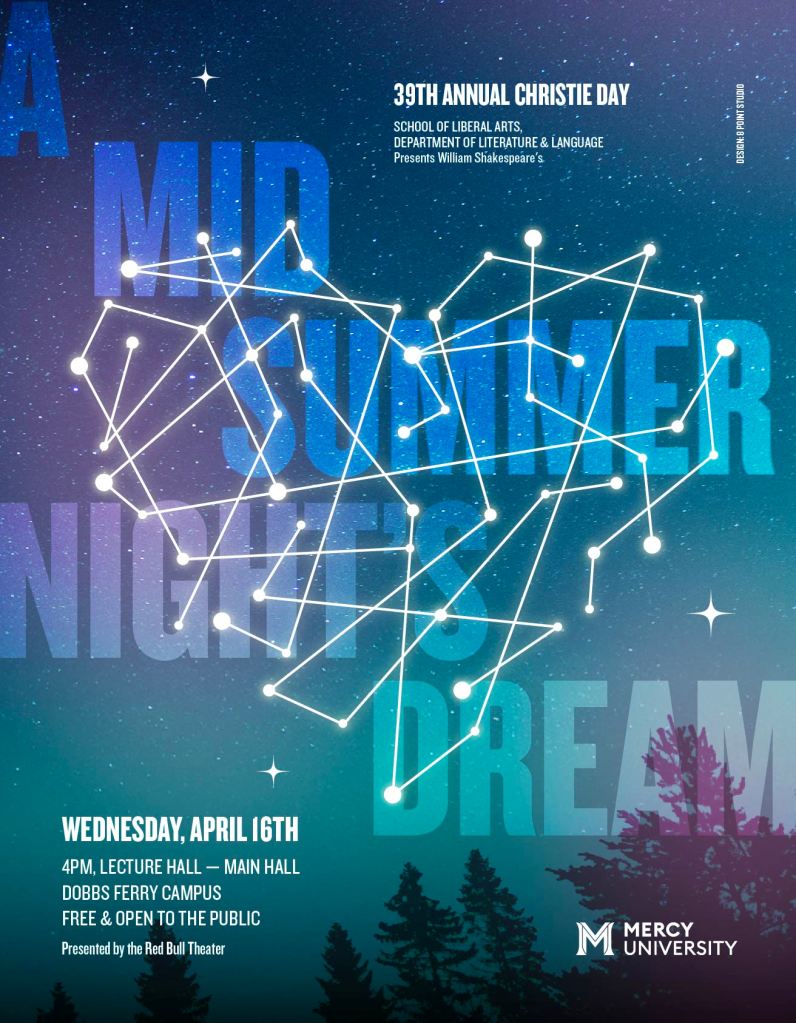Hi all, below you can find info on upcoming course offerings, as well as a few events taking place this spring. For the fall graduate schedule we’re starting with three courses. If demand warrants we’ll add more but we anticipate that three courses will suffice.
FALL 2026 COURSE OFFERINGS
- ENGL 507 – Narrative Strategies in the Novel (Dr. Fritz)
This course studies the novel and various narrative methods used in the novel over the centuries and across the British and American traditions. 3 credits. Fulfills either the Writing & Literary Forms field requirement or an elective.
- ENGL 524 Reason & Imagination (Dr. Sax)
This course studies a range of literature emerging first during the Enlightenment, and then during the subsequent Romantic era, with attention to Neoclassicism, among other things. Students will explore and consider some of the tensions between and informing these different eras and literary movements, will consider ways that these eras and movements relate to one another, including how the Romantic era and its emphasis on imagination emerged to some degree as a response to the Enlightenment and its emphasis on reason. As such, particular attention will be paid to the historical contexts from which the literature of these eras emerged, and to the role of reason and imagination in literature, history, and life. Fulfills a Literature Group 1 requirement or works as an elective.
- ENGL 541 Search for Identity in American Lit (Dr. Loots)
This course will study the search for identity, individually and collectively, as it manifests in American (United States) literature from Colonial times through the early twentieth century. Attention will be paid to the rapidly changing historical/cultural contexts from which such literature emerged, as well as to different literary movements emerging in America over the eras studied (e.g. Colonial, Revolutionary, Romantic, Realist, Modern). Part of the goal of the course is to provide students with an understanding of the foundations of literature in America. Another goal is for students to recognize just how vast and diverse the literature of America is, as well as how vast and diverse are the definitions of what it has meant, and means, to be “American.” Readings in previous instances of the course have included works by Anne Bradstreet, Edward Taylor, Olaudah Equiano, Jonathan Edwards, Thomas Paine, Alexander Hamilton, James Madison, Phillis Wheatley, Philip Freneau, Poe, Emerson, Margaret Fuller, Walt Whitman, Kate Chopin, Fanny Fern, Sojourner Truth, Frederick Douglass, Henry James, Charlotte Perkins Gilman, Charles Chestnutt, W.E.B. Du Bois, Paul Lawrence Dunbar, and Zora Neale Hurston. Likely we’ll encounter many or all of these authors and their works again this fall, and still others too might find their way into the course readings. Students might further elect to pursue readings of works from other nations, works emerging in time with the assigned American literature, to gain a more comprehensive and comparative understanding of the literature emerging globally during these centuries. Fulfills a Literature Group 2 requirement or works as an elective.
SUMMER 2026 COURSE OFFERING
For the summer we’re planning just one course, but if student demand warrants it we’ll add another. The summer course offering is:
- ENGL 515: Creative Writing – Telling Your Story (Dr. Sax)
Students in this course will work on crafting their memoirs, in various ways and forms. Unlike autobiography, which chronologically details the events and facts of a person’s life up over time, memoir involves personal reflections and life-stories centered around a theme: for example discovering one’s heritage, or overcoming fears or trauma, or coming of age, or the quest for belonging, etc. Students will consider existing published memoirs, explore themes for their own memoirs, craft and draft memoirs, and share and discuss them as a learning community of creative writers. No prior experience with creative writing is necessary to enroll in this course. Fulfills an elective but can work for any other area requirement, if needed.
UPCOMING SPRING EVENTS
For those local to the New York City area: Mercy English will be hosting our annual “Christie Day” Shakespeare festival on Wednesday, April 8, on the Dobbs Ferry campus, in the Main Hall Lecture Hall. The NYC-based Red Bull Theatre/Apocalyptic Artists acting company will be putting on a version of MacBeth, followed by Q&A between audience and actors. Admission is free and everyone in the graduate English community is welcome to attend, whether current grad student, alumni, or family/friend. Curtain is 4pm and the performance will end around 5:30pm. “Christie Day” is named for the late Joannes Christie, founder and former Chair of Mercy’s English Department.
The 2026 “Writing/Image/Text” or “WIT” Graduate English Symposium will take place on Saturday, April 25, at noon eastern, on Zoom. All students in the program are encouraged to attend and hopefully to participate by sharing a selection of your work. You could share a scholarly paper, or your creative writing, or a digital or multi-media project, or something musical or audio-visual, or practically anything else that’s of your scholarly or creative efforts. A distinct call for presentations will go out later, but anyone interested in presenting or simply attending as an audience member should clear your calendar now to be sure Saturday 4/25 is free. Although we limit presentations to our active grad students, all of our alumni and anyone else associated with the MA English Lit program’s learning community are welcome to attend.
For questions about any of this, please contact cloots@mercy.edu.



